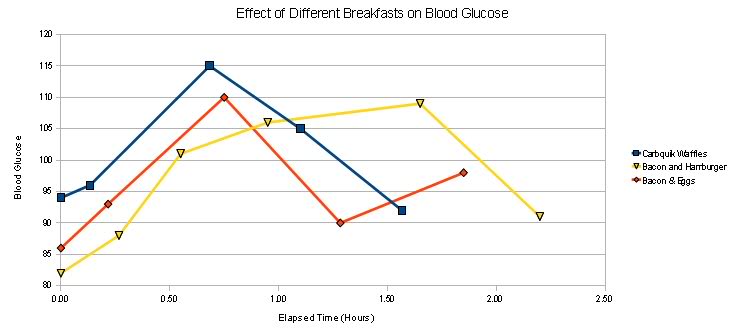ERD50
Give me a museum and I'll fill it. (Picasso) Give me a forum ...
You can lose weight on any diet, but recent studies show higher compliance and better health results with low carb diets vs low fat diets. Humans vary in insulin sensitivity by a factor of ~6, and insulin sensitivity is the primary thing that determines how someone's body will respond to an infusion of carbohydrate.
In the end, it is very easy to limit carbohydrate intake so you can experience what this means to you. For most people (~70%) limiting carbohydrate intake will improve health.
That's a much more balanced viewpoint, IMO. IIRC, the results in favor of low carb were pretty slight, but they were there.
Whether it is 'very easy to limit carbohydrate intake' - I guess it is an individual thing. I know plenty of people who went whole-hog into the low-carb thing, got a religious kind of fervor about it, and were not able to stick to it and lose weight (they couldn't stick to other diets either, to be fair). These low carb books have been on best seller lists and got plenty of press, yet obesity rates still rise. So I'm not sure it's all that easy. But it may be relatively easy for some.
In another thread, I think haha said something to the effect that this is all very complex and inter-related and likely genetics play into what works for one versus another, and that we will probably all be dead before it is well understood. That may very well be true.
I never bought into the "low fat" craze, and now we seem to be getting data that 'good fats' aren't the devil they were made out to be. So until I feel we have better data, I'm a little skeptical of any diet that cuts down a major food group that drastically. The exception for me being limiting refined carbs - I haven't seen any support for those, can't recall any serious 'eat a pound of table sugar at each meal and lose weight!' promotions.
-ERD50


